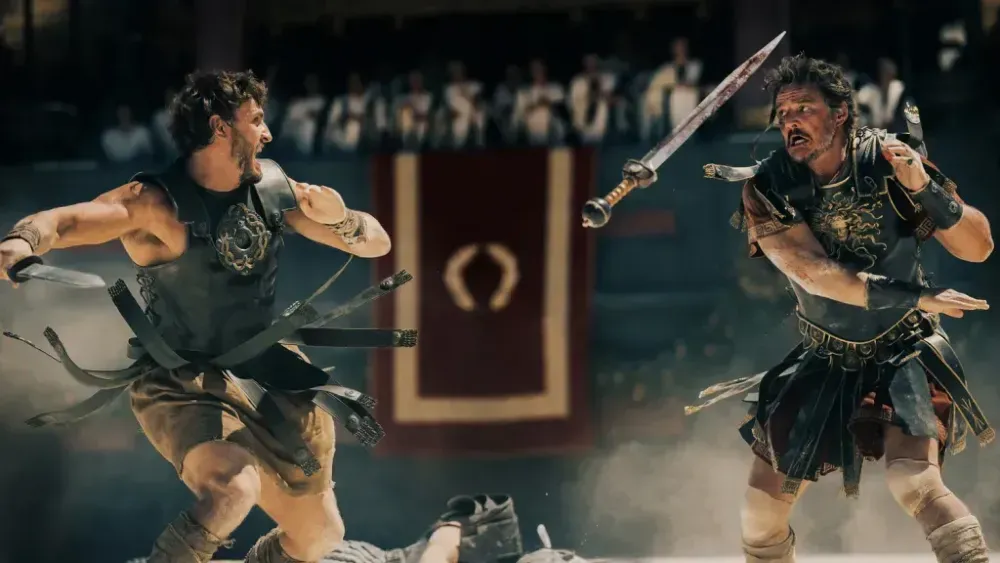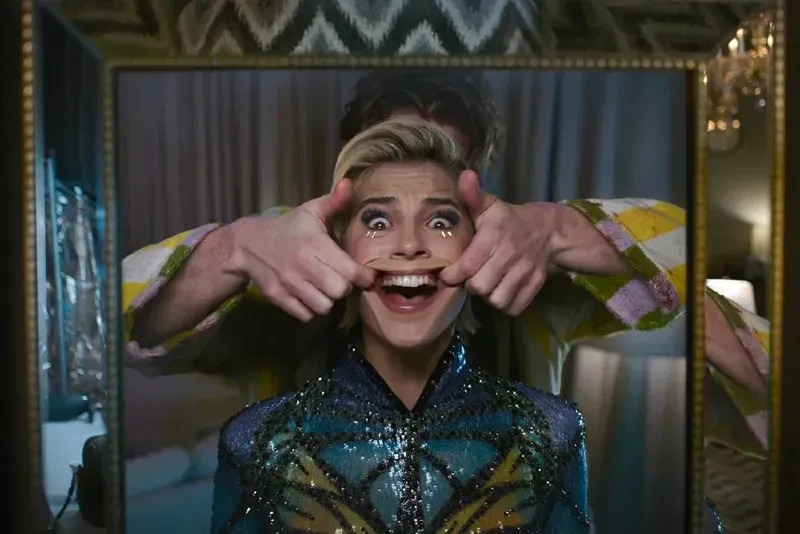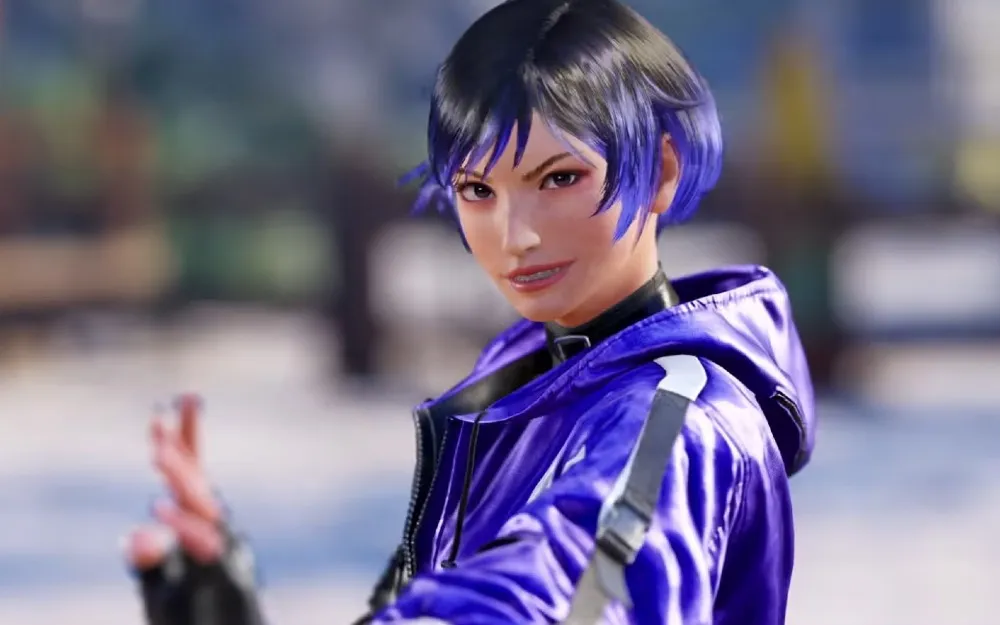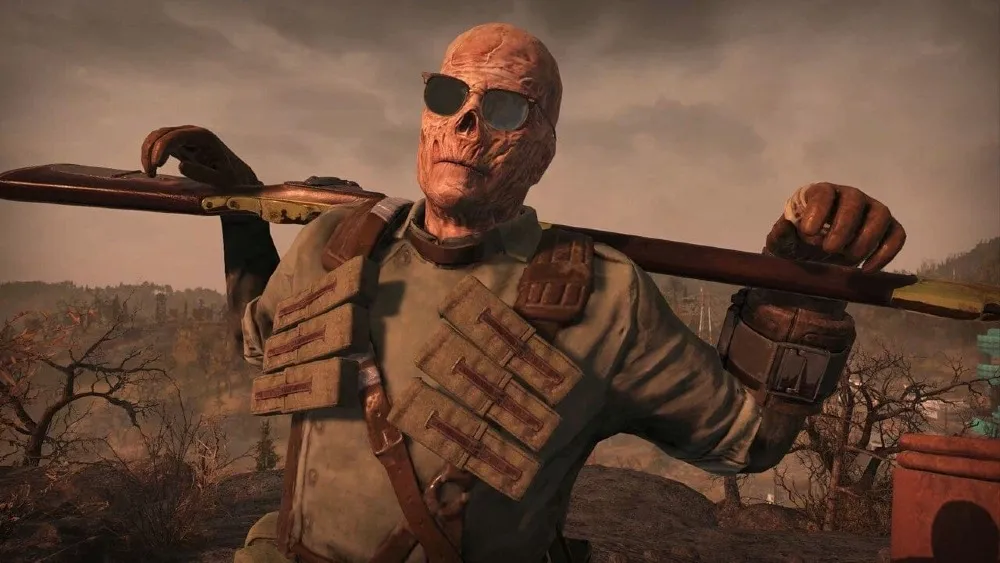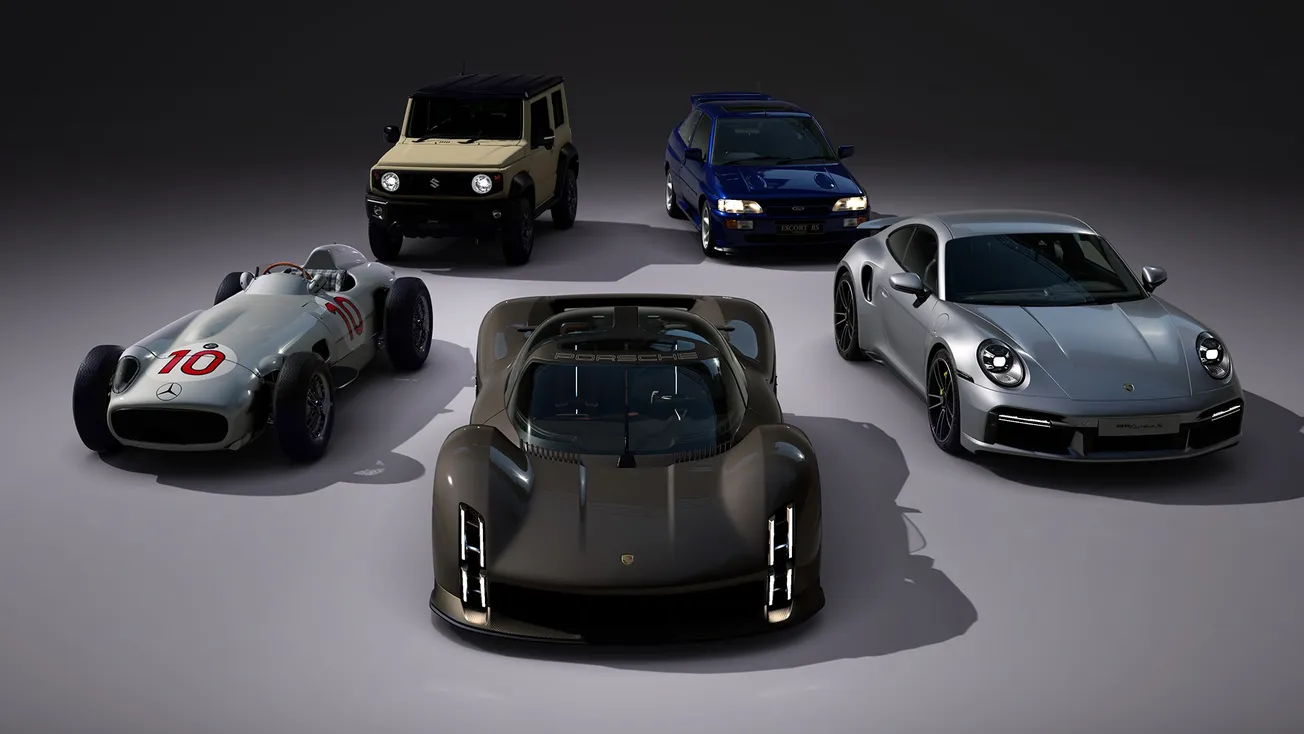Table of Contents
Gladiator is a magnificent, crowd-pleasing spectacle that we’ve rarely seen the likes of since its 2000 release. Beautiful sets and scenery, a clear hero’s journey, larger-than-life archetypes and epic plotting combined to produce a film that earned its rightful place among the best Hollywood epics. Yes, it’s melodramatic and a little bit corny, but it gets away with it because of its unapologetic earnestness and the filmmakers’ total commitment to the vision.
24 years later, with all the interim accumulated experience of its director and crew, and decades of technological development, we are treated to one of the worst movies of the year. Gladiator II is an embarrassing mess across the board, and represents career lows for both Ridley Scott and Denzel Washington. No one else involved fares any better. Gladiator II is the unfortunate product of an awful script, dismal acting, a bizarre tone and total lack of heart, as well as representing a depressing waste of the hundreds of millions of dollars it cost to put together and market.
A soldier with a mysterious past (Paul Mescal - All of Us Strangers) and his soldier wife Arishat (Yuval Gonen - The Missing) are called to defend their home, a free city on the North African coast, from a Roman fleet led by the empire’s greatest general Marcus Acacius (Pedro Pascal - Game of Thrones). His wife is killed during the battle, and he is captured by Roman soldiers. Shipped back to Italy as a slave, he soon catches the eye of the power-hungry, politically-connected gladiator owner Macrinus (Denzel Washington - Training Day), who tempts him with a chance for vengeance in exchange for giving his all in the arena.
Meanwhile, Acacius, his wife Lucilla (the sole returning character from the original, played by Connie Nielsen - Wonder Woman) and a group of dissident senators plot the overthrow of the tyrannical co-emperors of Rome (Joseph Quinn and Fred Hechinger) to return rule to the people. The reveal of a decades-old secret throws the two plotlines together, with the fate of the empire in the balance.
The start of the movie is actually quite promising, with a centrepiece battle scene pitting a fleet of Roman vessels equipped with siege engines against the heavily fortified city. Suitably epic and brutal, the choreography, effects and scale are reminiscent of Ridley Scott at his action-movie best. Unfortunately, it’s all downhill from there.
The plot is almost exactly the same as that of the original, which means comparisons between the two are easy to make, and highly unfavourable to the sequel. As the avenging gladiator, Paul Mescal is not terrible, but with some awful dialog and the spectre of Russell Crowe on the audience’s mind, he fails to imbue the main character with the screen presence so essential to a movie like this. Two speeches that are intended to be rousing fall completely flat, and the character's motivation also just fizzles out at one point and is then immediately cast aside, meaning his arc, and therefore the whole performance, is totally forgettable.
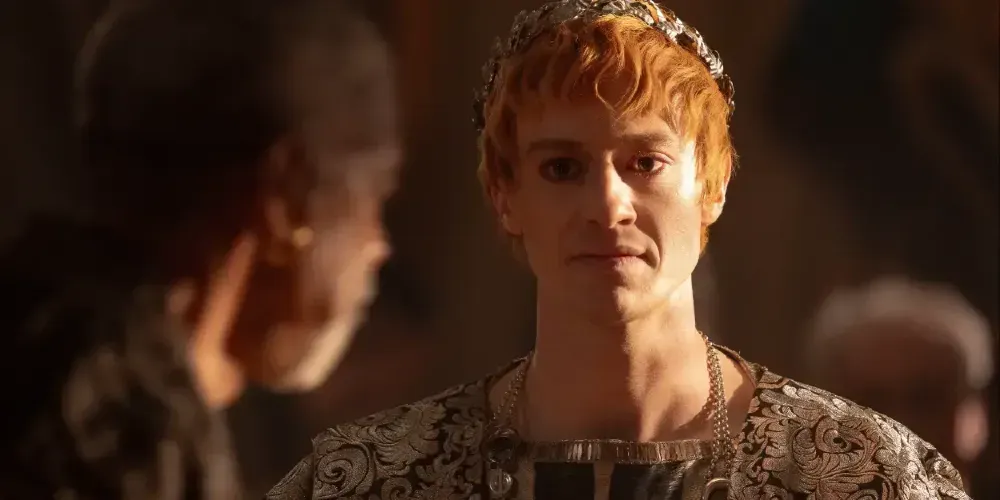
Joaquin Phoenix’s Commodus was melodramatic, camp and kind of ridiculous, but Phoenix’s performance was so compelling that he remains a memorable villain 24 years later. In its place we get Emperors Caracalla and Greta, two whiny, petulant, grating children so painful to watch that this is the closest I've ever come to walking out of a cinema. The two emperors are so bad it’s hard to believe these performances were intentional. For one of them, it seems like the filmmakers are making fun of some kind of syndrome.
This embarrassing spectacle sets the tone for the entire movie, with cringe worthy acting meeting ChatGPT-level dialogue in a series of odious, forgettable characters who all seem to be interacting in different productions, such are the differences in tone between scenes.
Pascal, overrated at the best of times, is oddly muted, though given the script and the supporting performances you could forgive anyone for not really knowing what was going on. Connie Nielsen is just kind of there, half-heartedly plot-devicing through until she isn’t needed any more.
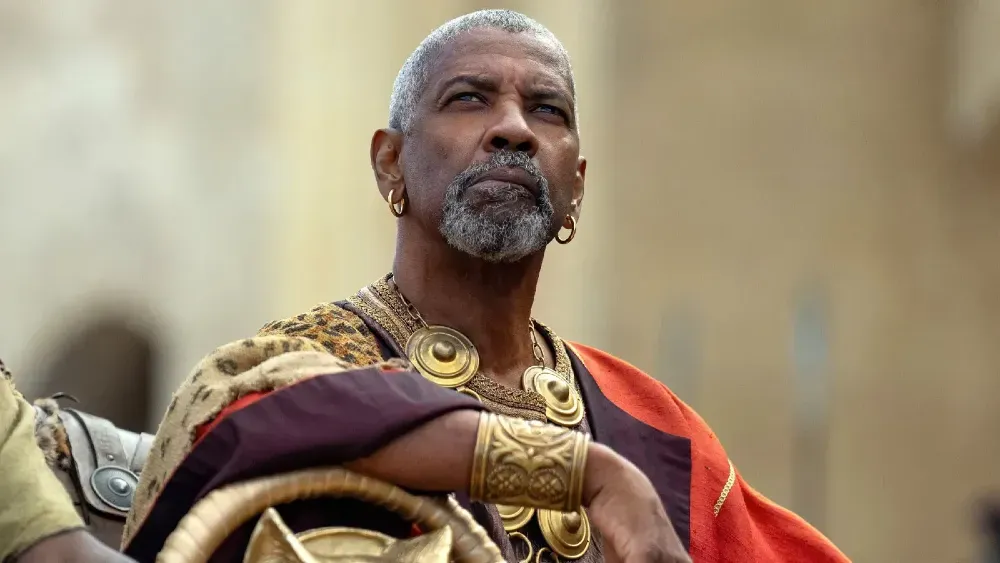
Denzel Washington brings a bizarre, manic energy to Macrinus, a thinly drawn caricature that just adds another layer of pointless complexity to a dull, plodding plot. He has far too much screen time and is almost as unwatchable as the emperors, doing nothing to elevate his fair share of the clunky dialogue. The accent he adopts is strange and off putting, sounding half-American and half parody-European.
The entire movie is almost comically camp, with earrings, makeup and over-the-top dramatics ever-present. The jarring gay innuendo is an odd choice for a supposedly mainstream movie, and Matt Lucas, as the Colosseum’s master of ceremonies, seems to be channeling one of his Little Britain sketches. There are numerous scenes, which, if seen out of context, could easily be confused with unfunny parodies of the sword and sandal genre.
At least with the arena scenes we get a few effective sword fights, but some of the attempts to one-up the original are so over-the-top as to be laughable. It feels like what we’d get if Disneyland decided to add an Ancient Rome ride. There are unintentional laughs aplenty for a rhinoceros-riding gladiator and a sea battle in a flooded Colosseum complete with cheap-looking CGI sharks. The fights in the original are far simpler but far more effective.
The special effects in the opening battle scene are amazing, but the budget seemed to have run out by the time we get to the arenas. An early fight with baboons is bizarre–they look like bad horror movie monsters that would normally only be inserted into very dark scenes to disguise how fake they look.
The music, such a memorable and effective element of the original movie, is totally forgettable this time around. Apart from maybe three moments that recycle music from the first film, I didn’t even notice it.
Gladiators II is an action movie, so plot should be important, but it’s barely an afterthought here. A major threat to the stability of Rome is forgotten about, and a character critical to the main character’s arc is just killed off mid-battle. The ending is disappointingly anticlimactic–a telegraphed epic battle never materialises and a mismatched fight holds no tension at all. Finally, a clumsy retcon is used to tie the two movies together and to allow for some Russell Crowe flashbacks, but this only further reminds us how much better the first one was.
It’s hard to believe, given the original, how this could have turned out as badly as it did. Aside from a few battle scenes, it’s a chore to sit through, and it treats its audience with utter contempt throughout.
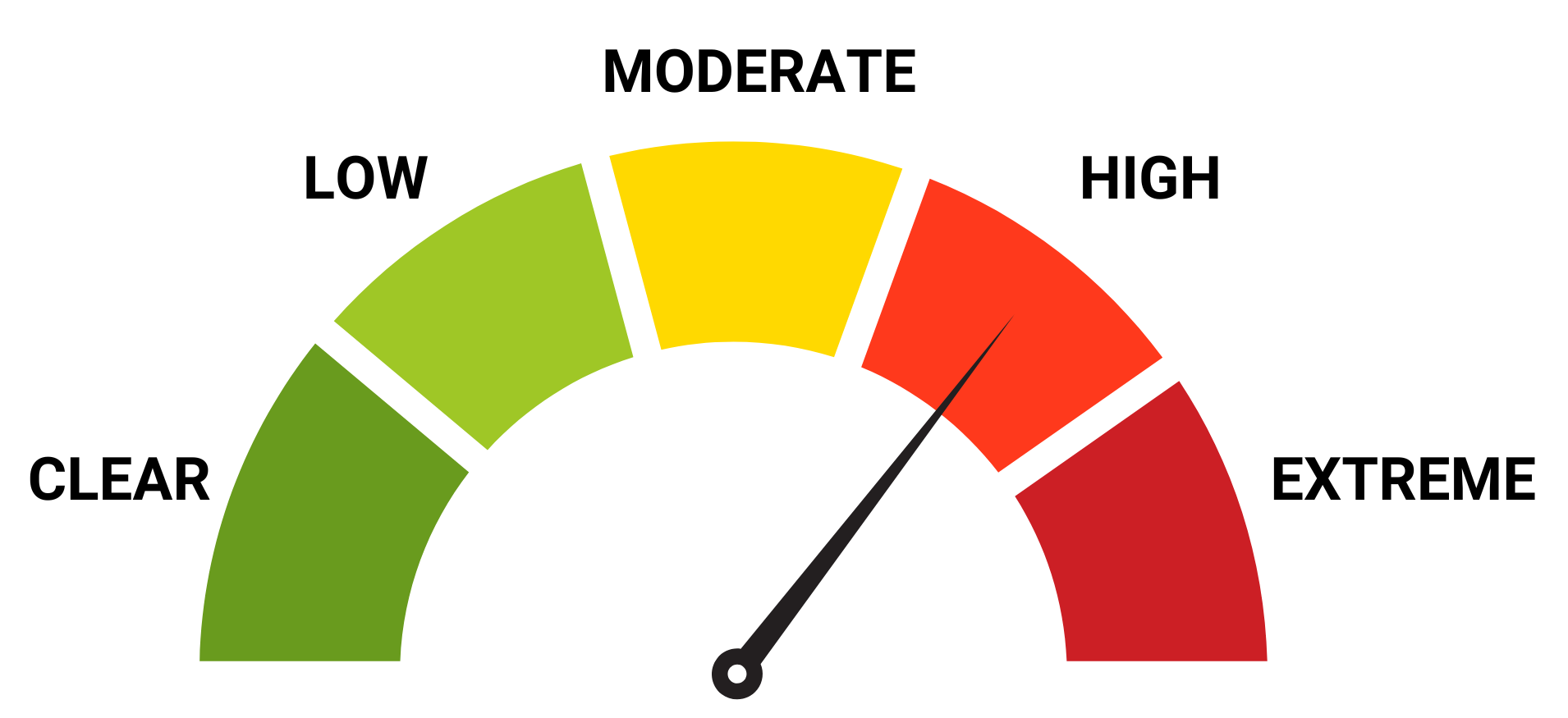
WOKE-O-METER
The whole movie is as gay as a Canadian picnic, and it’s hard to see this appealing to the general public. Apparently a gay kiss was cut because they were scared it would be too much lol.
The movie is an anti-colonialism allegory, with the opening scenes designed to present the multi-cultural paradise of Numidia being oppressed by the evil white man, and the gone-native Lucius clumsily spouts anti-colonial sentiments at random times throughout the movie. In a telling parallel to today’s Democratic Party politics, the solution is to keep everything exactly the same but replace the dictators with a “benevolent” group of elites.
The tokenism is also off the charts. Every Oppressed Race® gets a sympathetic character representing them, though they have nothing to do except be wise and honorable.
Just so you are aware, dear readers, while this is one of the most embarrassingly woke movies ever made, it would still be a terrible film even if those aspects were completely stripped out. It really is that bad. -GamerGate staff

